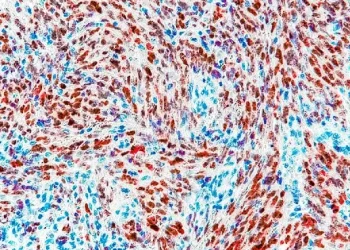In a breakthrough that could reshape biomedical data interpretation, researchers at the National Institutes of Health (NIH) have developed GeneAgent—an AI tool designed to boost the accuracy of gene set analysis by independently verifying results against trusted scientific databases.
A Smarter Way to Analyze Genes
NIH scientists announced the development of GeneAgent in July 2025 as a direct response to growing concerns about the reliability of AI-generated content in biomedical research.
Powered by a large language model (LLM), GeneAgent evaluates gene sets by generating functional descriptions and then verifying its own predictions against expert-curated databases.
This approach addresses a longstanding issue in artificial intelligence: hallucinations, or the confident generation of incorrect information.
Tackling a Critical AI Challenge
Most LLMs, while powerful, lack built-in verification mechanisms. They often evaluate their own output using internal logic, which can lead to misleading results.
In medical and genetic research, such inaccuracies can delay scientific discovery or misinform critical decisions.
GeneAgent stands apart by introducing a self-verification module that compares its output to high-quality, peer-reviewed databases. This added layer of fact-checking significantly reduces the likelihood of hallucinated or unsupported claims—offering researchers a tool with measurable integrity.
How GeneAgent Works
GeneAgent operates in two main steps:
-
It generates a list of functional claims about a gene set.
-
It then cross-checks each claim against curated biomedical databases to confirm or refute them.
To test the model’s capabilities, researchers ran GeneAgent on 1,106 gene sets sourced from established repositories.
The tool produced verification reports detailing whether each functional description was supported, partially supported, or refuted by existing data.
Two independent experts manually reviewed 132 claims from 10 gene sets. Their analysis found that 92% of GeneAgent’s decisions were accurate—an impressive benchmark compared to leading models like GPT-4.
Performance Comparison and Reliability Scores
| Tool Evaluated | Self-Verification Accuracy | Human Expert Agreement | Hallucination Risk |
|---|---|---|---|
| GeneAgent | 92% | High | Low |
| GPT-4 (unverified) | ~70% | Moderate | High |
| Human Baseline | N/A | Reference Standard | Variable |
GeneAgent’s consistency reflects the importance of validating AI outputs with independent sources. Its architecture enables it to interpret high-throughput molecular data more reliably than tools relying solely on inference.
Real-World Applications in Cancer Research
The NIH team further evaluated GeneAgent using seven gene sets from mouse melanoma cell lines. The results revealed novel insights into potential gene functions—information that could guide future cancer therapies or lead to new drug targets.
This step from validation to knowledge discovery signals a powerful new use case: not only verifying information but generating actionable research pathways.
Why This Matters Now
Gene set analysis is a foundational method in genomics, used to understand how groups of genes influence disease, development, and treatment response. AI tools that lack accountability pose a risk in this space.
By embedding expert-reviewed feedback loops, GeneAgent delivers a balance between innovation and trust, helping researchers produce reliable insights without the usual caveats of unverified AI tools.
Advantages of GeneAgent
-
Reduces AI-generated hallucinations through external verification
-
Achieves high expert agreement across gene sets
-
Offers insights applicable to real-world genetic research, including oncology and drug development
What’s Next for AI in Genomics?
Although GeneAgent shows great promise, it remains limited by its dependence on the databases it can access and its inability to reason like a human.
Still, its integration of self-assessment mechanisms suggests a future where AI can serve not just as a tool but as a research partner.
As NIH continues refining this technology, GeneAgent may pave the way for smarter, more ethical use of AI in life sciences.
Final Thought
GeneAgent’s blend of language modeling and scientific validation addresses one of AI’s most pressing challenges—credibility.
By prioritizing accuracy through expert-curated data, NIH has created a platform that enhances trust in AI-powered biomedical research. For those navigating the future of genomics, GeneAgent is a development worth watching.
Sources: National Institutes of Health.
Prepared by Ivan Alexander Golden, Founder of THX News™, an independent news organization delivering timely insights from global official sources. Combines AI-analyzed research with human-edited accuracy and context.









